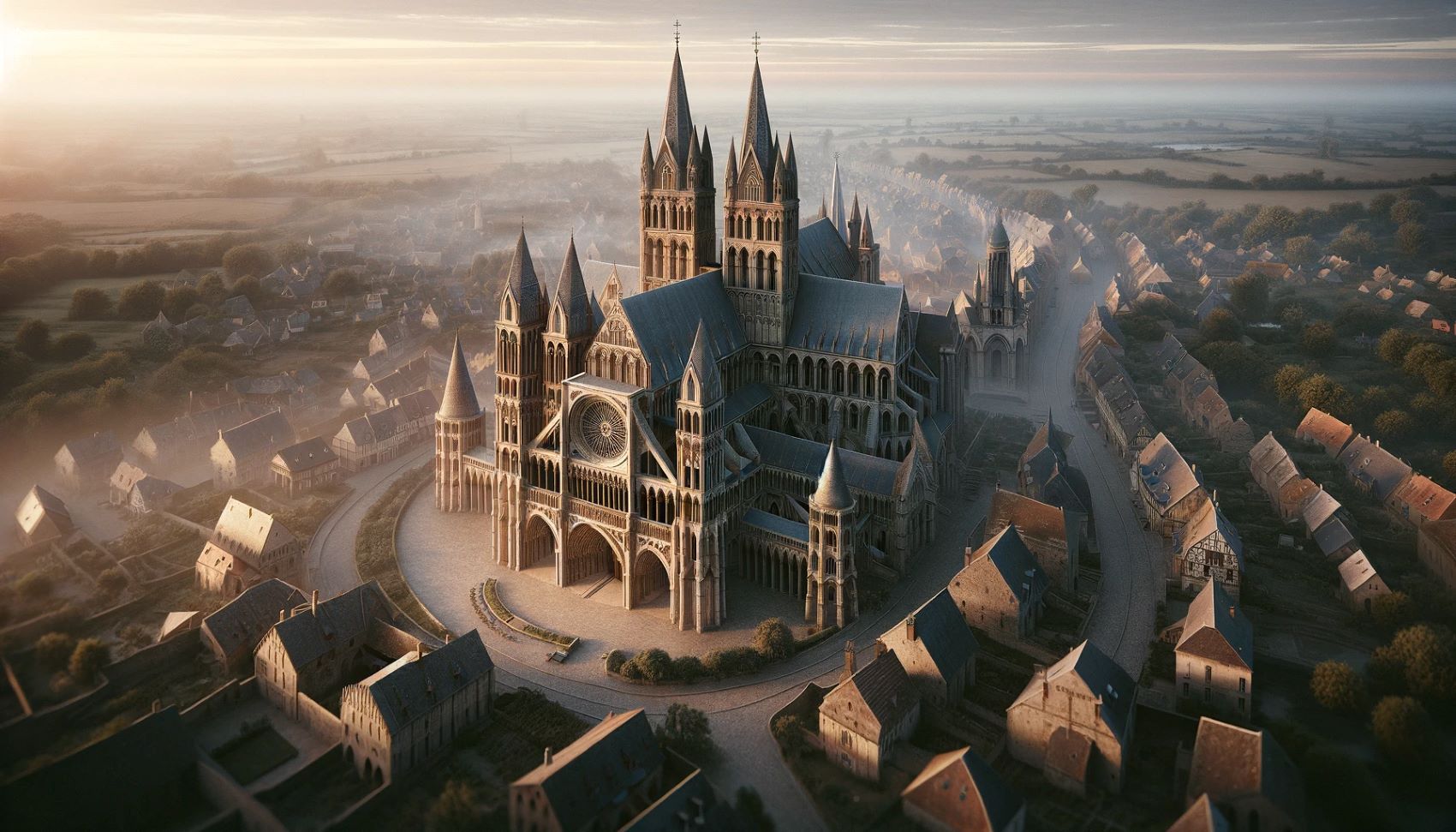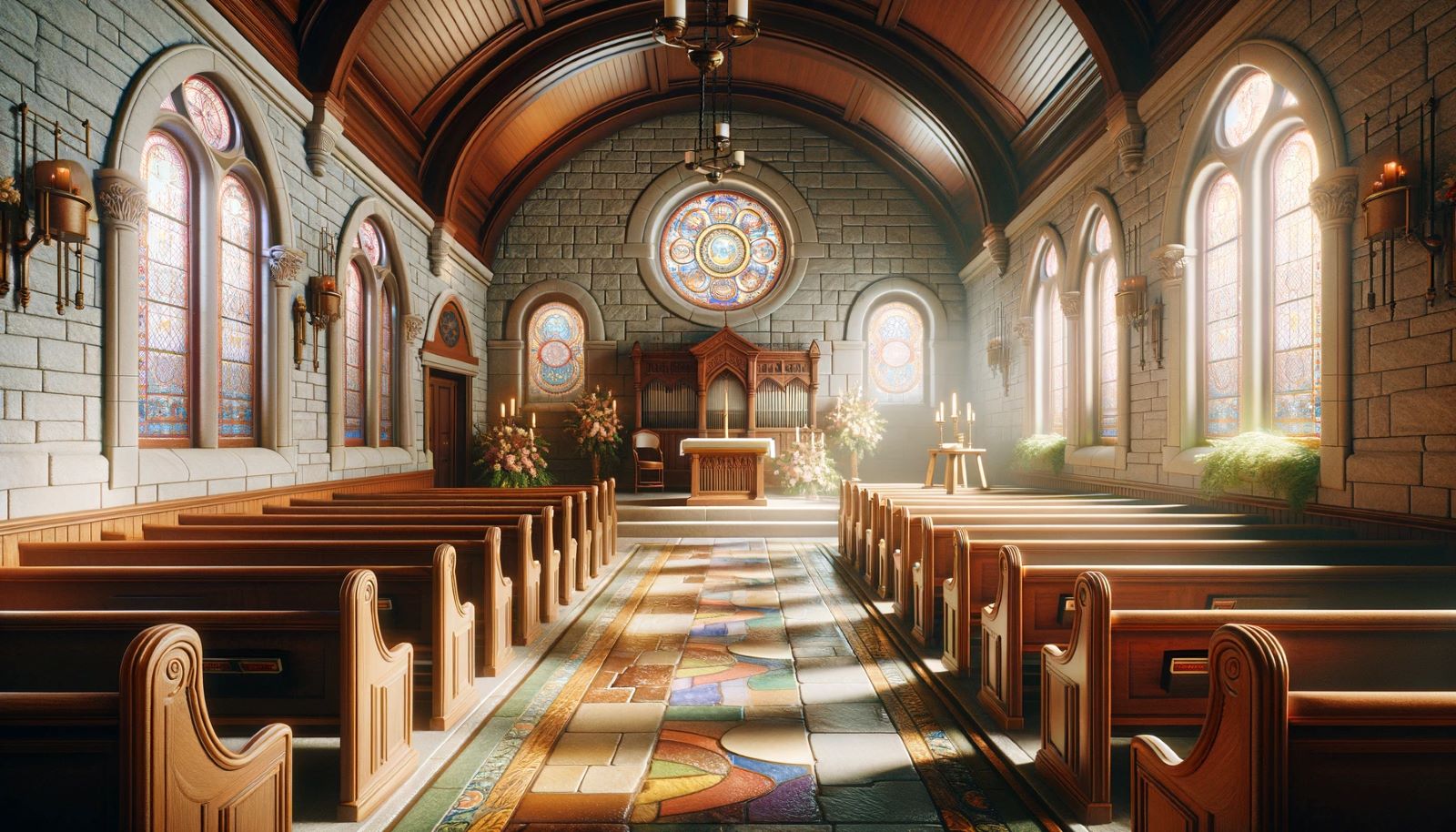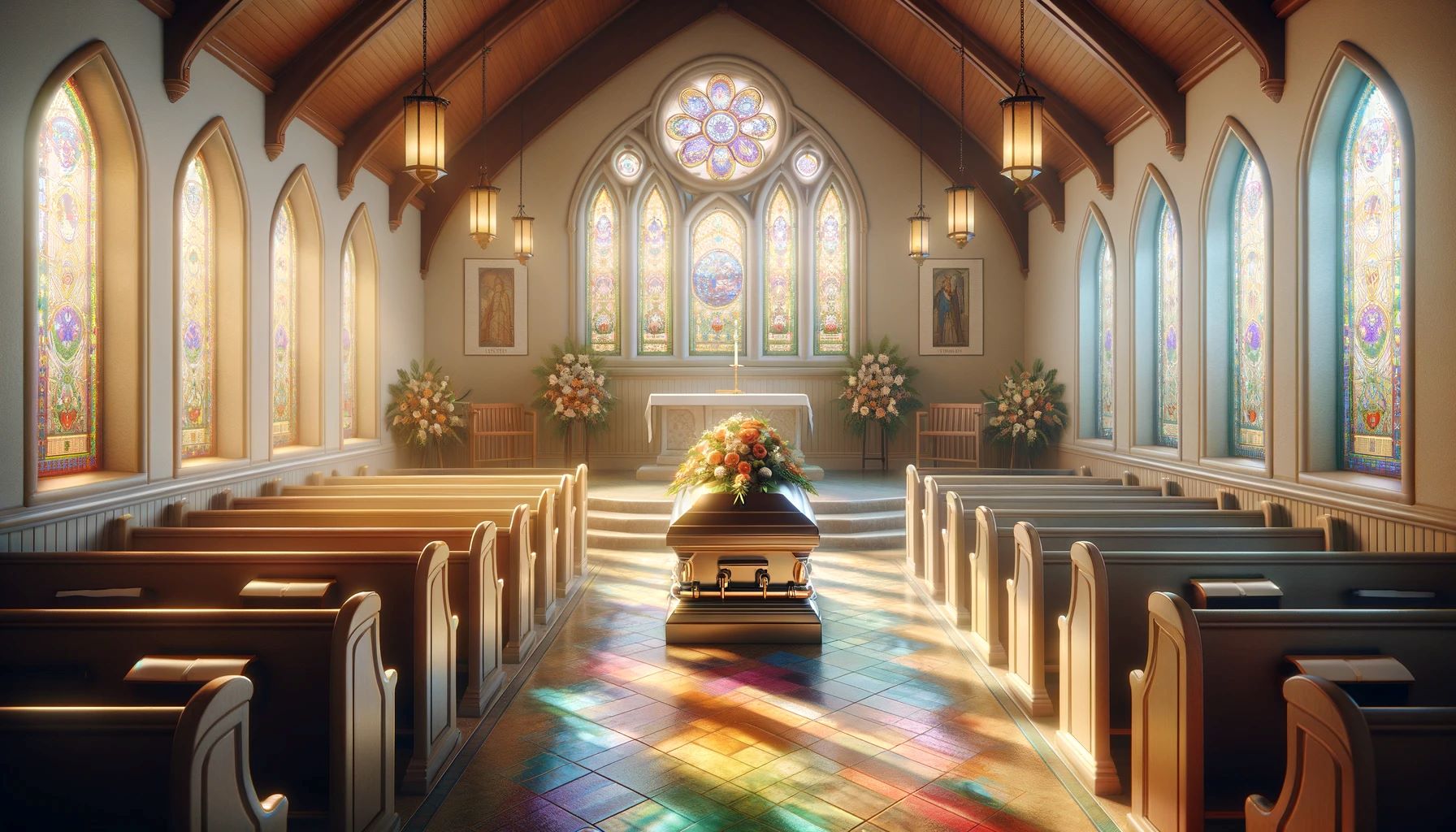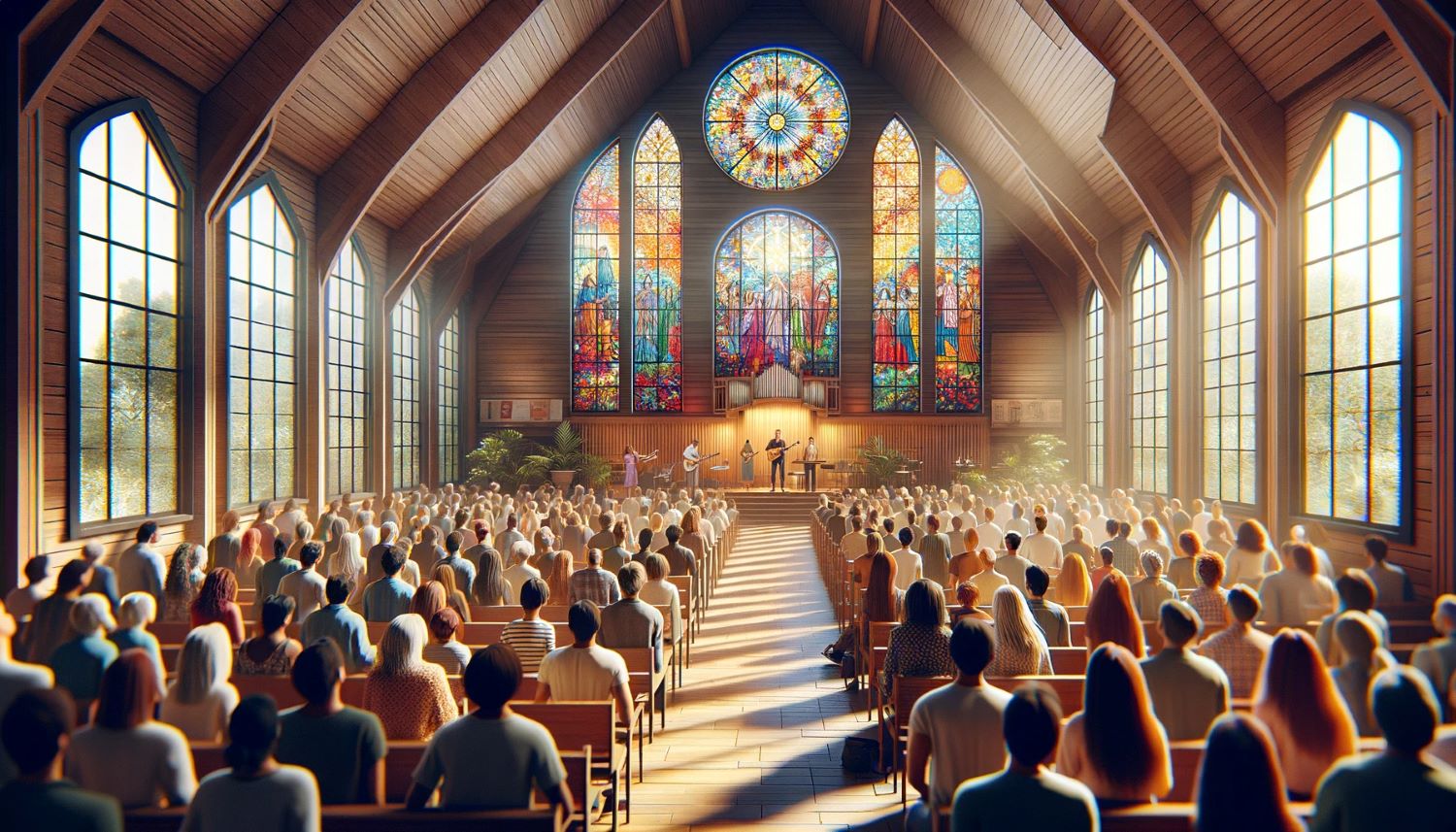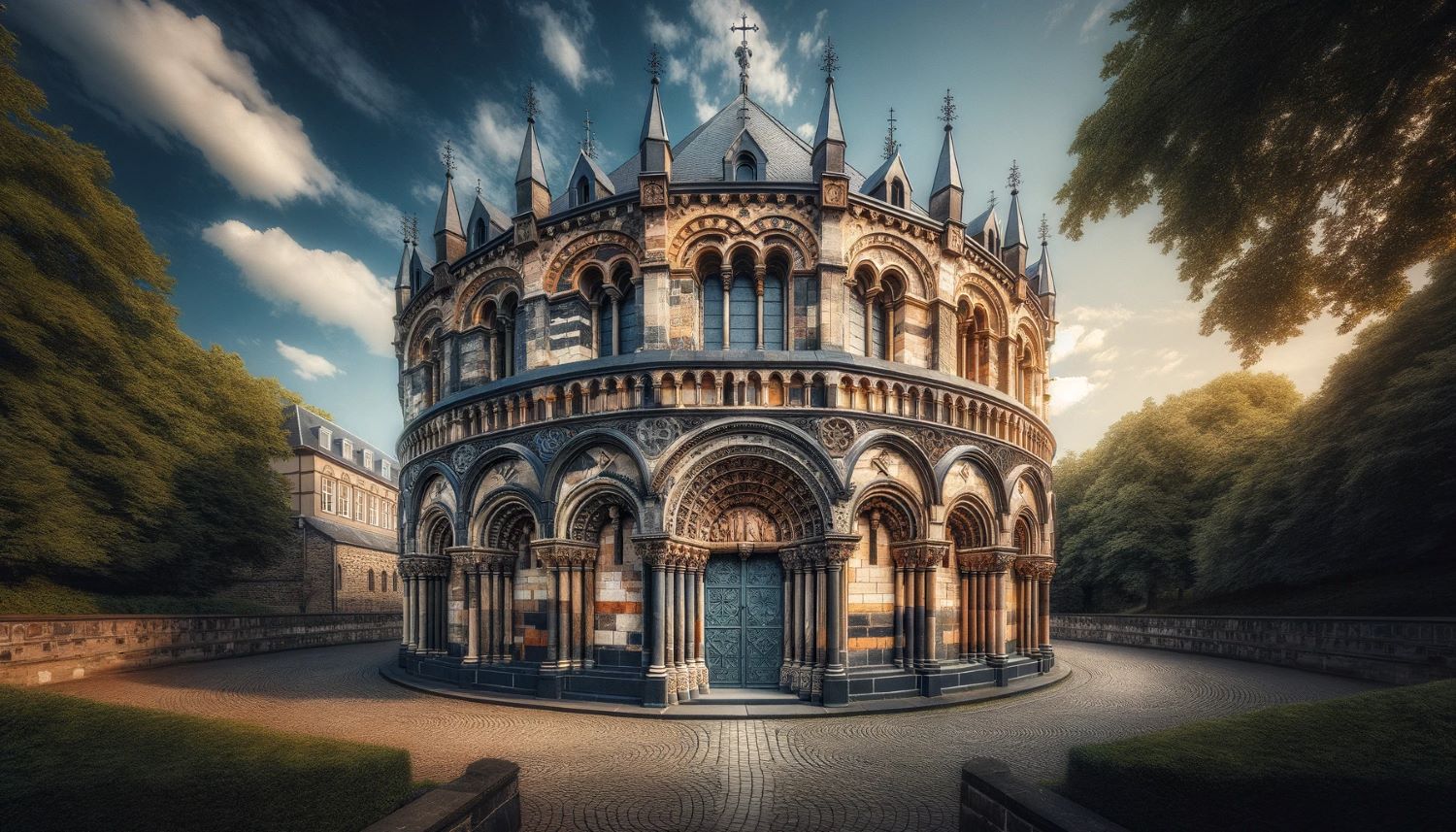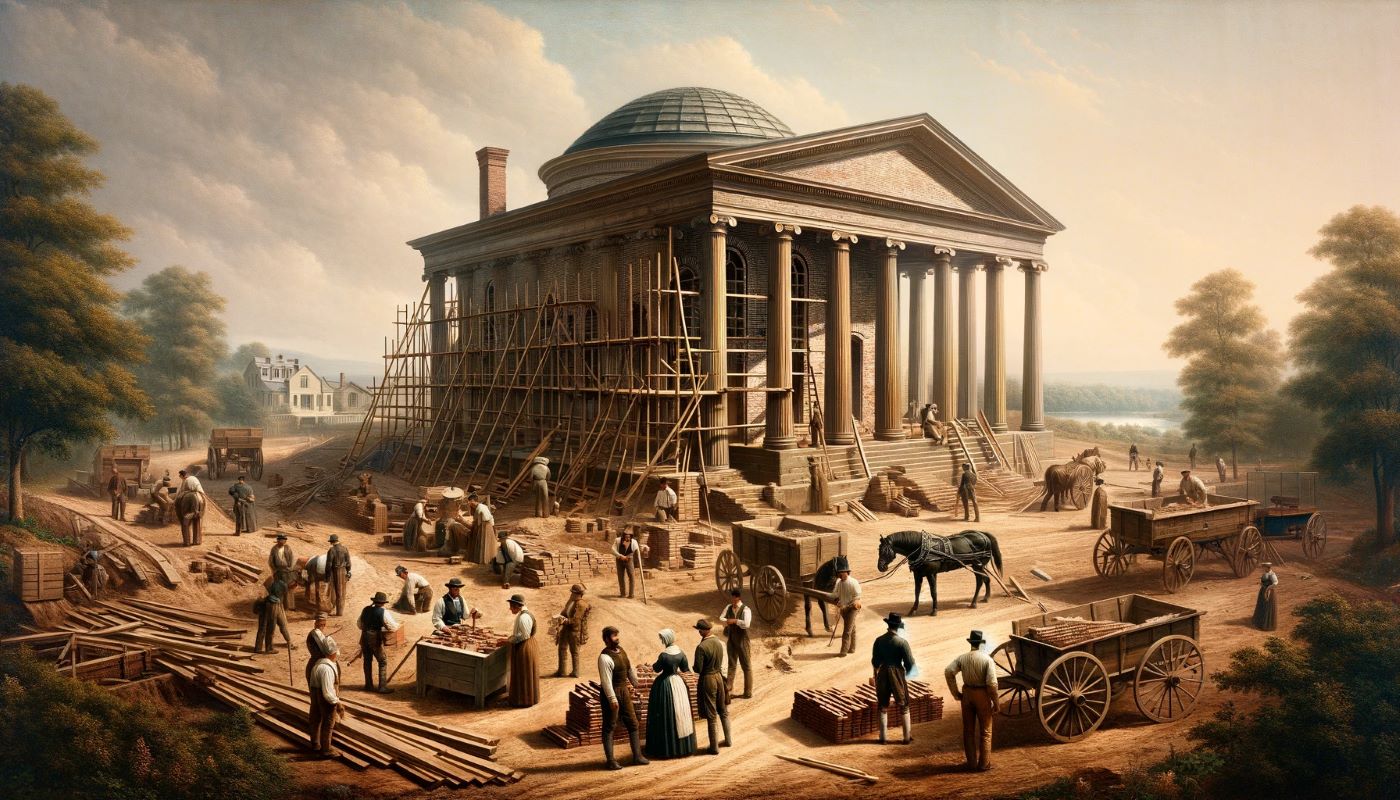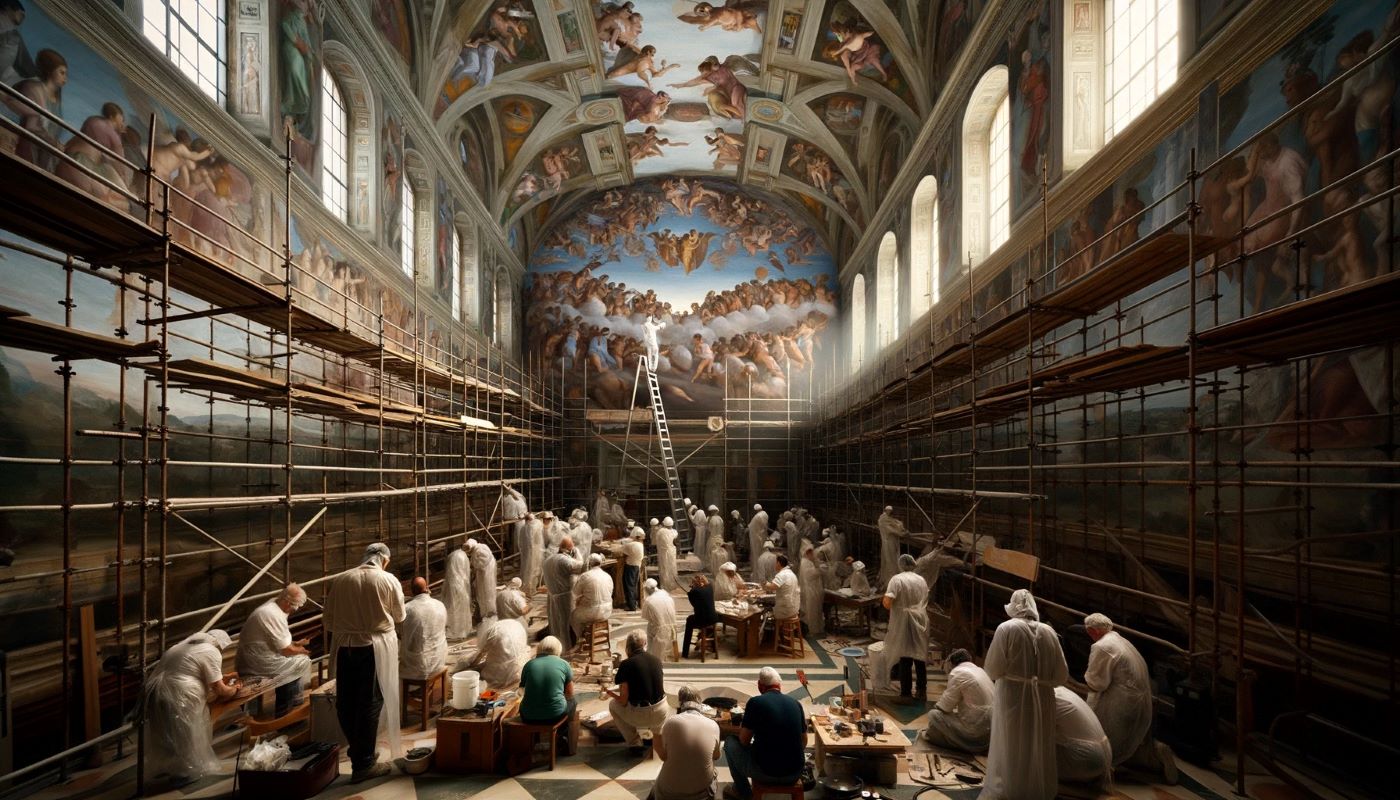Home>Arts and Culture>What Is A Memorial Chapel


Arts and Culture
What Is A Memorial Chapel
Published: March 4, 2024
Peter Smith, Editorial Director at Christian.net, combines deep insights into faith, politics, and culture to lead content creation that resonates widely. Awarded for his contributions to religious discourse, he previously headed a major organization for religious communicators, enhancing dialogue on faith's societal impacts.
Discover the significance of a memorial chapel and its role in arts and culture. Explore the history and purpose of these unique spaces.
(Many of the links in this article redirect to a specific reviewed product. Your purchase of these products through affiliate links helps to generate commission for Christian.net, at no extra cost. Learn more)
Table of Contents
Introduction
What is a memorial chapel? A memorial chapel is a sacred space dedicated to honoring and remembering the lives of individuals who have passed away. It serves as a place for families and communities to gather, reflect, and pay tribute to their loved ones. Memorial chapels hold a significant place in various religious and cultural traditions, providing a comforting and serene environment for mourning and remembrance. In this article, we will explore the history, purpose, design, and importance of memorial chapels in communities.
Read more: 20 Memorial Day Prayers
History of Memorial Chapels
-
Origins: The concept of memorial chapels dates back centuries, with roots in various religious and cultural practices. In Christianity, the tradition of dedicating a specific space for memorial services and remembrance can be traced to the early days of the church. The idea of a designated chapel for commemorating the deceased has been an integral part of Christian worship and community life.
-
Evolution: Over time, the purpose and design of memorial chapels have evolved to accommodate the changing needs of communities. In addition to serving as places of worship, these chapels have become central to the grieving process, providing solace and support to those mourning the loss of a loved one.
-
Cultural Significance: Beyond Christianity, memorial chapels hold cultural significance in various traditions around the world. In many cultures, the act of honoring and remembering the departed is deeply ingrained in the fabric of society. As a result, memorial chapels have become symbols of respect, unity, and the enduring bond between the living and the deceased.
-
Architectural Influence: The architectural styles of memorial chapels have been influenced by different historical periods and cultural movements. From grand cathedrals to intimate chapels nestled in serene landscapes, the design of these sacred spaces reflects the values and beliefs of the communities they serve.
-
Continued Relevance: Despite the passage of time, the concept of memorial chapels remains relevant and essential in contemporary society. These sacred spaces continue to provide a sense of comfort, healing, and spiritual connection to individuals and families navigating the journey of grief and loss.
The history of memorial chapels is a testament to the enduring human need for remembrance, reflection, and the preservation of cherished memories. As we delve into the purpose and significance of these sacred spaces, it becomes evident that their historical roots have shaped them into invaluable pillars of support for communities worldwide.
Purpose of Memorial Chapels
-
Facilitating Grief and Healing: Memorial chapels serve as sanctuaries where individuals and families can navigate the complex emotions of grief and loss. These sacred spaces provide a tranquil environment for mourners to find solace, seek spiritual guidance, and begin the healing process.
-
Honoring and Remembering: The primary purpose of a memorial chapel is to honor and remember the lives of those who have passed away. Through memorial services, candlelight vigils, and other commemorative events, these chapels offer a platform for families and communities to celebrate the legacies of their loved ones.
-
Supporting Spiritual Practices: For many, memorial chapels are integral to their spiritual and religious practices. These spaces offer a setting for prayer, meditation, and contemplation, allowing individuals to find comfort and strength in their faith during times of bereavement.
-
Fostering Community Connection: Memorial chapels play a vital role in fostering connections within communities. They provide a gathering place for people to come together, offer support, and share in the collective experience of honoring the departed.
-
Preserving Memories and Legacies: Within the walls of a memorial chapel, the memories and legacies of the deceased are preserved and cherished. Through photographs, memorial plaques, and other tributes, these spaces become living testaments to the impact and influence of those who have passed on.
-
Offering a Sense of Continuity: In the face of loss, memorial chapels offer a sense of continuity and connection to the past. They provide a physical space where the memories of loved ones can endure, ensuring that their presence is felt and honored for generations to come.
-
Providing Comfort and Serenity: The tranquil and contemplative atmosphere of memorial chapels offers a sense of comfort and serenity to those in mourning. The peaceful surroundings and thoughtful design of these spaces create an environment conducive to reflection and emotional healing.
-
Promoting Reflection and Gratitude: Memorial chapels encourage individuals to reflect on the value of life and express gratitude for the time shared with those who have passed away. They serve as reminders to cherish each moment and embrace the profound impact of love and connection.
The purpose of memorial chapels extends far beyond serving as mere physical structures. These sacred spaces are imbued with profound meaning, providing a haven for emotional expression, spiritual connection, and the enduring celebration of life.
Design and Architecture of Memorial Chapels
The design and architecture of memorial chapels are carefully crafted to evoke a sense of reverence, tranquility, and spiritual contemplation. These sacred spaces are often characterized by their thoughtful layout, symbolic elements, and harmonious integration with natural surroundings. Here are key aspects of the design and architecture of memorial chapels:
-
Serene Setting: Memorial chapels are often situated in serene and picturesque locations, such as tranquil gardens, wooded areas, or overlooking scenic vistas. The natural surroundings contribute to the peaceful ambiance of the chapel, providing a sense of solace and connection to the beauty of the earth.
-
Architectural Elements: The architectural style of memorial chapels varies widely, ranging from traditional to modern designs. Many chapels feature elements such as soaring ceilings, stained glass windows, and graceful arches, creating a sense of grandeur and spiritual upliftment.
-
Symbolic Imagery: Symbolism plays a significant role in the design of memorial chapels. From religious iconography to representations of nature and eternity, the imagery within these spaces is carefully chosen to convey themes of hope, remembrance, and the transcendent nature of life.
-
Light and Space: The use of natural light and open space is a defining feature of memorial chapel design. Large windows and open floor plans allow for an abundance of natural light, creating an ethereal atmosphere that encourages contemplation and introspection.
-
Incorporation of Nature: Many memorial chapels incorporate elements of nature into their design, blurring the boundaries between the built environment and the natural world. This integration of nature serves to symbolize the interconnectedness of all living things and the enduring cycle of life.
-
Simplicity and Elegance: While some memorial chapels boast ornate architectural details, others embrace a minimalist aesthetic characterized by simplicity and elegance. The understated design allows for a focus on the spiritual and emotional experience within the chapel, free from distractions.
-
Accessibility and Inclusivity: In modern chapel design, there is a growing emphasis on accessibility and inclusivity. Chapels are designed to accommodate individuals of all abilities, ensuring that everyone can partake in the experience of remembrance and reflection.
The design and architecture of memorial chapels are a testament to the thoughtful consideration given to creating spaces that honor the departed and provide comfort to the living. Through their harmonious blend of art, nature, and spirituality, these chapels stand as timeless symbols of the enduring human need for solace, connection, and the celebration of life.
Services and Events Held in Memorial Chapels
Memorial chapels host a variety of services and events that cater to the diverse needs of individuals and communities as they navigate the journey of grief, remembrance, and spiritual healing. These gatherings provide opportunities for communal support, reflection, and the celebration of life. Here are some of the services and events commonly held in memorial chapels:
-
Memorial Services: Memorial chapels are often the setting for formal memorial services, where family members, friends, and community members gather to honor and remember the life of the deceased. These services may include eulogies, musical performances, and readings that pay tribute to the individual's legacy and impact.
-
Candlelight Vigils: Candlelight vigils held in memorial chapels offer a poignant and symbolic way to express solidarity and remembrance. The soft glow of candlelight creates a reverent atmosphere, allowing participants to reflect on the memories and enduring spirit of those who have passed away.
-
Remembrance Ceremonies: Chapels frequently host remembrance ceremonies, providing a space for individuals to come together and share their memories of the departed. These ceremonies often incorporate rituals, prayers, and moments of silence, fostering a sense of connection and collective remembrance.
-
Support Groups and Counseling: Many memorial chapels offer support groups and counseling services to assist individuals and families in coping with grief and loss. These sessions provide a safe and nurturing environment for sharing experiences, receiving guidance, and finding comfort in the company of others who are navigating similar challenges.
-
Community Outreach Programs: In addition to serving as places of worship and remembrance, memorial chapels often engage in community outreach programs. These programs may include educational workshops, grief support initiatives, and partnerships with local organizations to address the broader needs of the community.
-
Art and Music Therapy Sessions: Some memorial chapels incorporate art and music therapy sessions into their offerings, recognizing the healing power of creative expression. These sessions provide individuals with opportunities to channel their emotions through artistic and musical outlets, fostering a sense of emotional release and renewal.
-
Commemorative Events: Throughout the year, memorial chapels host commemorative events to mark significant occasions such as anniversaries of passing, holidays, and other milestones. These events serve as touchstones for families and communities to come together and honor the enduring impact of their loved ones.
-
Interfaith Gatherings: Many memorial chapels embrace interfaith dialogue and collaboration, hosting gatherings that welcome individuals from diverse religious and spiritual backgrounds. These inclusive events promote unity, understanding, and the shared experience of honoring the departed.
The services and events held in memorial chapels reflect the diverse needs and expressions of individuals and communities as they navigate the complexities of grief and remembrance. Through these gatherings, chapels serve as nurturing and inclusive spaces that offer support, healing, and the enduring celebration of life.
Read more: What Is The Value Of The Sistine Chapel
Importance of Memorial Chapels in Communities
Memorial chapels hold profound significance within communities, serving as pillars of support, solace, and communal connection. Their importance extends beyond religious and cultural boundaries, offering a sanctuary for individuals and families to navigate the complexities of grief, remembrance, and spiritual healing. Here are key aspects that highlight the importance of memorial chapels in communities:
-
Emotional Support and Healing: Memorial chapels provide a safe and nurturing environment for individuals to seek emotional support and begin the healing process following the loss of a loved one. These sacred spaces offer a refuge for those grappling with grief, providing a sense of comfort, understanding, and the opportunity to connect with others who share similar experiences.
-
Community Cohesion: Through the services and events they host, memorial chapels play a vital role in fostering community cohesion. They serve as gathering places where individuals from diverse backgrounds can come together to offer support, share memories, and find strength in the collective experience of honoring the departed.
-
Cultural and Spiritual Significance: Regardless of religious affiliation, memorial chapels hold cultural and spiritual significance within communities. They provide a space for individuals to express their faith, seek spiritual guidance, and draw upon the enduring traditions of remembrance that are deeply ingrained in the fabric of society.
-
Preservation of Legacies: Memorial chapels serve as custodians of the legacies and memories of those who have passed away. Through the commemorative events and tributes held within these spaces, the impact and influence of the departed are preserved and cherished, ensuring that their stories continue to resonate within the community.
-
Educational and Supportive Resources: Many memorial chapels offer educational workshops, support groups, and counseling services that address the broader needs of the community. These resources provide valuable guidance and assistance to individuals and families as they navigate the complexities of grief, loss, and the journey toward healing.
-
Symbol of Continuity and Connection: In the face of loss, memorial chapels offer a sense of continuity and connection to the past. They serve as physical and spiritual anchors, ensuring that the memories and legacies of loved ones endure, and that their presence is felt and honored for generations to come.
-
Inclusive and Welcoming Spaces: Memorial chapels embrace inclusivity and welcome individuals from diverse backgrounds, fostering an environment of understanding, empathy, and shared humanity. These inclusive spaces provide a platform for interfaith dialogue, mutual support, and the celebration of the universal bonds that unite communities in times of loss.
-
Promotion of Reflection and Gratitude: Through their serene and contemplative atmosphere, memorial chapels encourage individuals to reflect on the value of life and express gratitude for the time shared with those who have passed away. They serve as reminders to cherish each moment and embrace the profound impact of love and connection.
The importance of memorial chapels in communities lies in their ability to provide comfort, support, and a sense of continuity in the face of loss. These sacred spaces stand as beacons of hope, unity, and the enduring celebration of life, serving as invaluable resources for individuals and communities as they navigate the journey of remembrance and healing.
Conclusion
In conclusion, memorial chapels hold a profound and enduring significance in the realm of religion and community life. From their historical origins to their modern-day relevance, these sacred spaces serve as sanctuaries for remembrance, healing, and communal support. The design and architecture of memorial chapels are carefully crafted to evoke a sense of reverence, tranquility, and spiritual contemplation, while the services and events held within their walls cater to the diverse needs of individuals and communities as they navigate the complexities of grief and loss. The importance of memorial chapels in communities lies in their ability to provide comfort, support, and a sense of continuity in the face of loss, serving as invaluable resources for individuals and communities as they navigate the journey of remembrance and healing. As enduring symbols of hope, unity, and the enduring celebration of life, memorial chapels stand as beacons of solace and communal connection, offering a haven for emotional expression, spiritual connection, and the enduring celebration of life.

